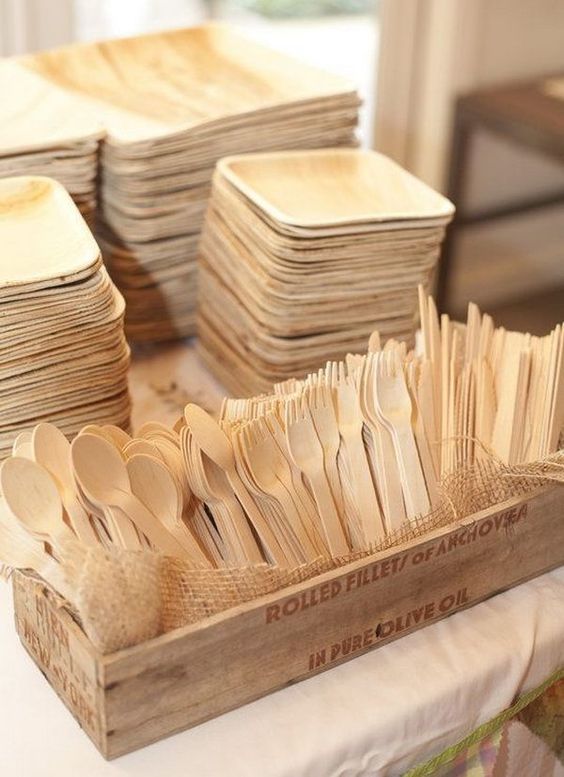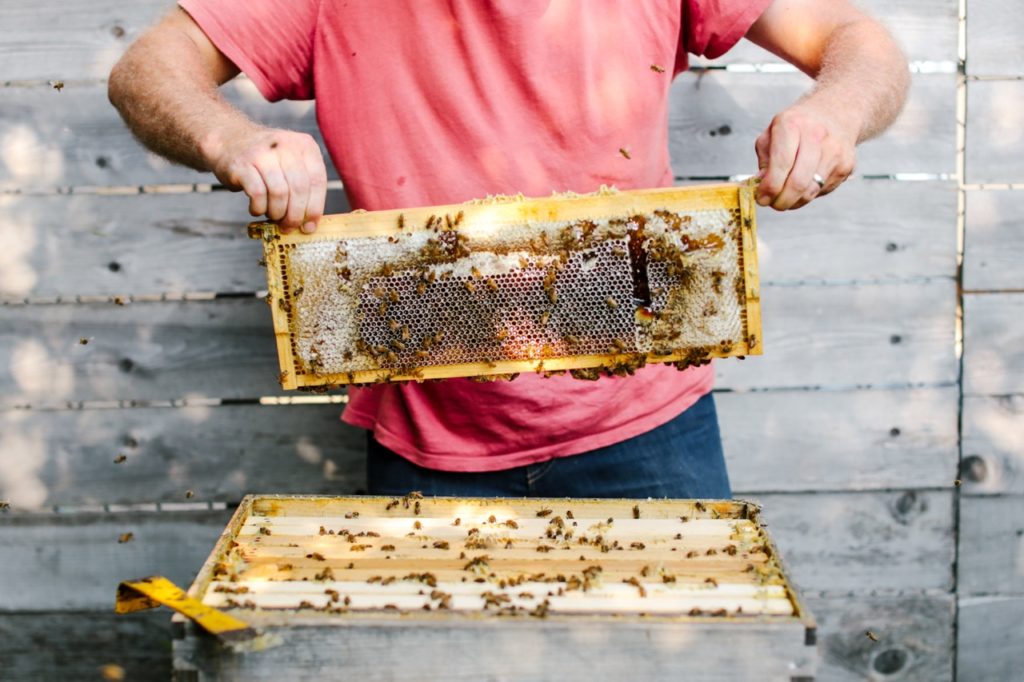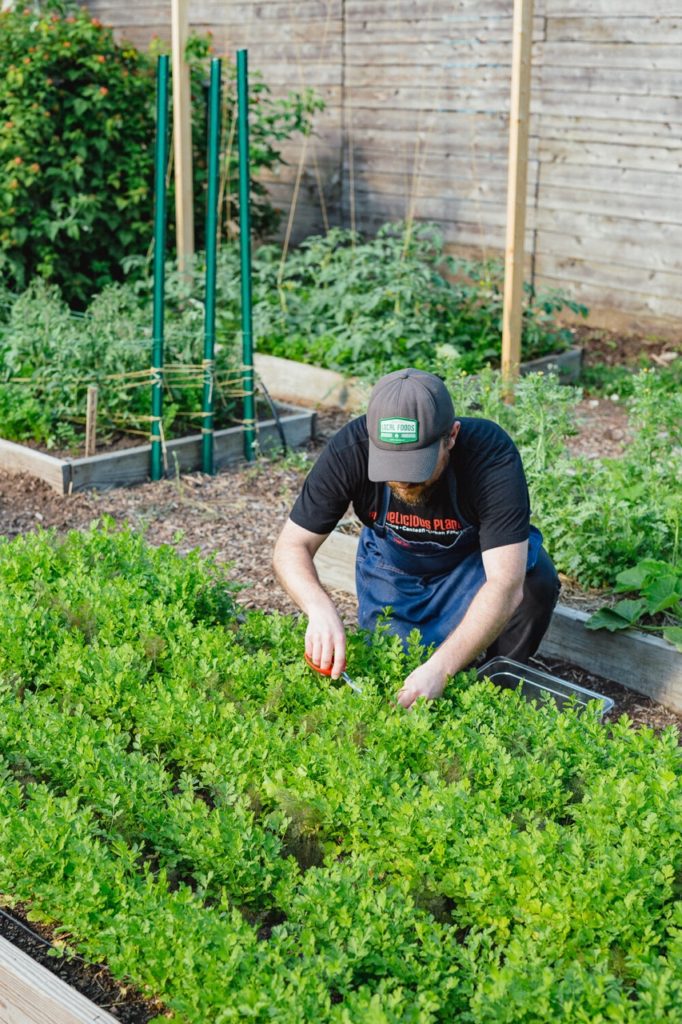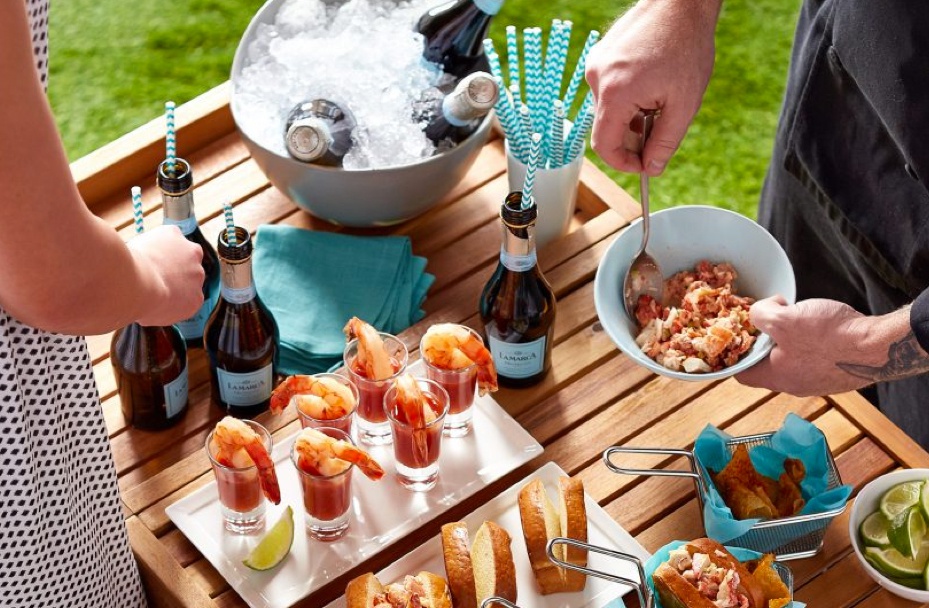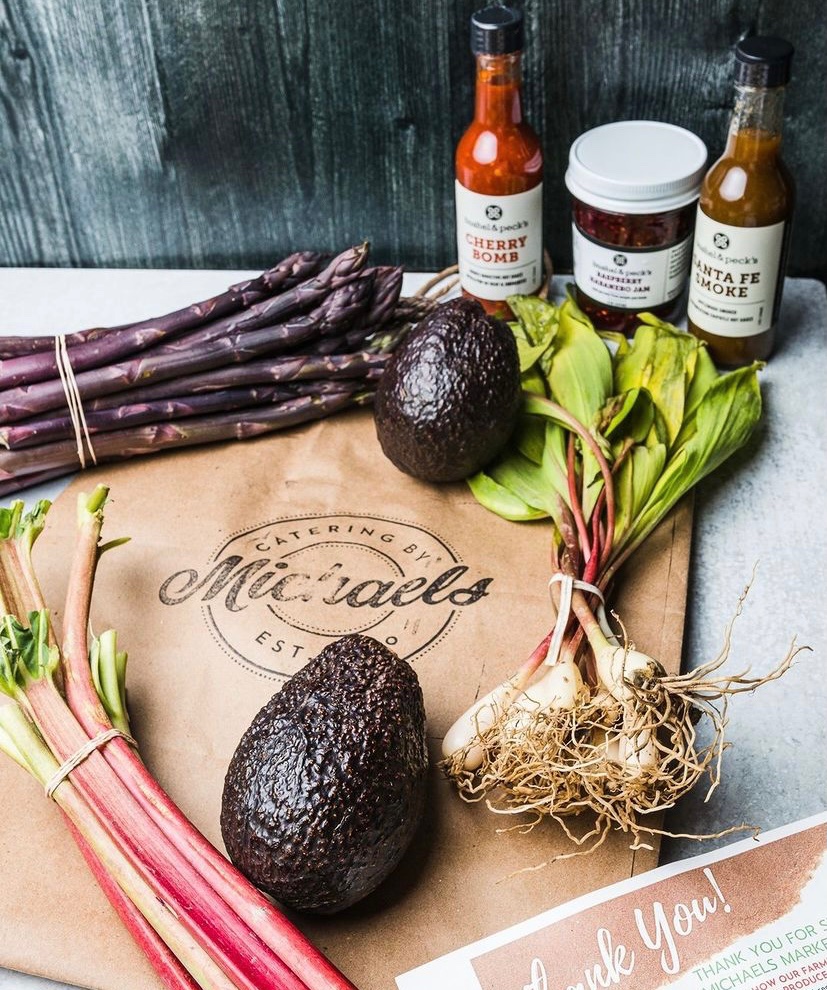Catering | Green Practices
June 16, 2021
June 16, 2021
June 16th, 2021
Kicking off our “Green Practices” series, we decided to focus on catering as it is one of the largest pieces of any event. The event industry is known to produce a lot of waste, and a lot of that can come from catering companies if they’re not careful. Below are some simple ways that any caterer can be more eco-friendly. If you continue to scroll, we interviewed three of Chicago’s top “green” catering companies that have given wise words of wisdom on how caterers can strive towards creating a healthier planet!
Is your caterer using the following practices?
- Use seasonal and sustainable food
- Minimize food waste: there’s no need to over feed anyone!
- Consider a plated meal vs. buffet
- Save water: avoid pre-filling glasses (and/or rent smaller water glasses)
- Use recyclable materials like paper straws (please, no plastic!)
- Go digital for all contracts / proposals / invoicing / communication
- Source locally grown/produced items
- Choose organic / free-range meats
- Donating leftover food: avoid landfills
- Offer more vegetarian / vegan options
- Energy efficient machinery
- Use green cleaning products
- Reduce carbon footprint by reducing energy use
- Repurpose leftover ingredients for events within a few days
- Compost for landscaping
- Feature a beverage station in lieu of single-use plastics (water bottles)
- Use fair-trade coffee & tea
- Use sustainable flatware (bamboo)
- Grow your own herbs/produce
- Have your own bee hives
- Minimize transportation
- Designate clear recycling bins classified by type
- Use reusable signage for menus, etc. (more ideas will be in our future stationary blog!)
Chicago is home to many prestigious catering companies who are great leaders in the eco-friendly world. If you are planning your next event, and you want to be a part of taking the green initiative, we highly recommend asking your potential caterer if they use any of these green practices, and if not, if they can accommodate any of these ideas because the waste from every single event makes a difference!
Food For Thought (FFT)
7001 N. Ridgeway Ave., Lincolnwood, IL
FFT is a group of companies focusing on creating elegant dishes while being ethically sourced and sustainable. They’ve taken their green initiative and widened it into social responsibility instead of just saying they’re “going green”.
Social Responsibility
The Three Pillars of their Triple Bottom Line
People: We value everyone and each person speaks to their social responsibility and helps motivate others.
Product: We continuously improve our practices because we are a part of a complex system of sourcing, transporting, and disposing of products we represent.
Planet: “We do not own this planet, we borrow it from our children”. We are committed to our role in protecting the environment.
Questions We Asked
How does FFT make eco-friendly choices?
“Steps that we have taken in 2021 to be more green:
– Offsetting Energy Use: We buy carbon offsets (carbonfund.org) by planting trees, etc.
– Going digital: Applications and employee manual’s that were once on paper are all only accessible digitally
– Root to leaf mentality: We use as much as they can from each product
– Straws: no plastic straws are presented, we love our agave straws
– We created a sustainability group where we get together at least every quarter and we ask our team to brainstorm new ideas about going green. Then we have different departments train others and overtime it has become part of the culture, which all new employees know as they are onboarded
– Incentivizing commuting via bike
– This year we set out to reduce their junk mail
– Green Seal Certification: Every year we are asked hard questions about our practices and they continue to get harder to pass every year as expectations continue to raise
– Reducing Landfill Waste: Over 65-70% is no longer going into the landfill whereas a long time ago all of our waste would go to a landfill”
– We follow the guidelines of Monterrey Bay Aquarium Seafood Watch list and purchases seafood from suppliers who are MSC (Marine Stewardship Council) certified. These two regulatory organizations promote sustainable fishing practices and lower the impact that commercial fishing has on the ecosystem.
Big Delicious Planet (BDP)
412 N. Wolcott Avenue, Chicago, IL 60622
BDP has been proudly certified as the “Greenest Caterer in America”. They specialize in farm-to-table weddings & events by using produce grown in their urban farms. They have a commitment to the environment in all aspects of their business and hope to continue improving their sustainability efforts and purchasing practices.
Ways that BDP implements eco-friendly practices
- Their goal is to divert as much waste that could go to a landfill by recycling and composting as much as we can
- Added aerators to faucets and dual flush handles to toilets to save water
- Using eco-friendly chemicals in our building to reduce pollution
- They have added light switches with sensors
- Offering sustainable glassware and disposable goods which can be compostable or recycled
- Locally sourced foods
- Growing their own food in their urban farm
- Consciously bought building materials
Questions We Asked
How does BDP make eco-friendly choices?
“BDP makes eco-friendly decisions on what will reduce our catering company’s impact on the planet. We’re looking at 7 categories: Waste, Water, Chemicals, Energy, Disposables, Food, and our Building.”
How does BDP teach it’s employees about your environmental procedures?
“We’ve been a 4 Star Certified Green Restaurant and the “Greenest Caterer in America” since 2013, and aim to be a very low waste kitchen and operation. We’ve done a lot of the work on the front end to make our company green, so when people start here they learn the routine of composting, recycling, harvesting from our own farm and purchasing from local farms. Each chef has a compost bucket in their station. All of our used cooking oil is poured into a huge vat that is picked up by a biodiesel service which then uses it to fuel Loyola University shuttle buses and to make soap for campus bathrooms.”
Catering By Michaels (CBM)
6203 Park Ave, Morton Grove, IL 60053
Michaels considers the impact to the environment in all decisions we make for the company. They are proud to be the first, and only, caterer in North America that is both Green Restaurant Certified and Green Seal Certified.
Ways that CBM implements eco-friendly practices
- Waste minimization
- Compost stations set up at all locations in our building
- Single stream recycling programs
- Styrofoam free environment
- 30% of purchases food is sourced locally
- Used cooking grease is recycled into biofuel
- Offers eco-friendly, biodegradable, & reusable products
- 80% of seafood purchases are sustainable
Questions We Asked
How does CBM make eco-friendly choices?
“We consider the impact to the environment in all decisions we make for the company. We cared about sustainability and being eco-friendly long before it was the trendy thing to do. We always prioritize outcomes that create the smallest possible footprint in all areas of our business. We follow several sustainable practices, both in house at our Commissary and off site at events. We have compost stations set up at all locations in our building as well as single stream recycling programs and are a proud Styrofoam free environment. All of our used cooking grease is recycled into bio fuel and we only use eco-friendly cleaning supplies. We offer clients the choice of returnable packaging and offer a wide selection of eco-friendly, biodegradable products.”
Does CBM implement any practices to increase water and/or energy efficiency?
“For water efficiency, all employees drink from water coolers using reusable and refillable bottles and cups. We use low flow aerators on all faucets and spray valves and have implemented low flow toilets. For energy efficiency, we have a software called Fleetmatics, that tracks all our delivery vans and trucks, enforces anti-idling policies and promotes energy efficient travel routes. Our office is equipped with digital thermostats and motion censored lighting that are programmed to maximize energy efficiency. We also only purchase Energy Star labeled appliances and products.”
Do you know the average amount of waste your company has per event, and what is common in the industry?
“It would be nearly impossible to measure this per event since every event is so different from service style, to guest count, to menu type. The best way to analyze waste is by the number of yards (how waste is measured) per thousand dollars of food sold. We track this on large events so that we can plan for appropriate dumpsters, recycling and compost containers to have onsite at each event. Rather than try to track daily waste, we focus efforts on getting as close to zero waste to landfill as possible. We continuously analyze what we send out on trucks, what comes back, and how to reduce packaging used in transport.”
Lisa Ware, Director of Business Development
We’re always continuing to research ways to practice eco-friendly events. If any of our readers would like to contribute or share new ideas we would love to hear from you! We hope this sheds some light on ways you can help make your event more eco-friendly.
– Ohana Events
© ohana events 2022 .
ALL RIGHTS RESERVED | SITE CREDIT.
CONTACT
BLOG
south florida
destination
midwest
HOME
dream big
let's
con
nect
Read
ABOUT
South Florida
Midwest
Destination
services
Events
BLOG
Get Inspired
Connect
INQUIRE
Contact Us
Chicago's Rental Collection
Meet The Team
